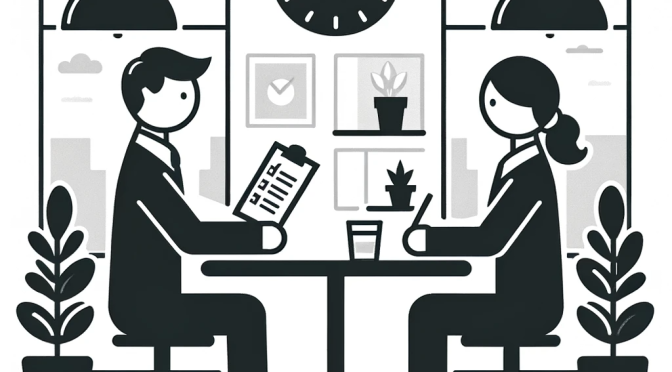Following these tips will increase the odds that a high-stakes job interview goes well:
Be Yourself
Be honest … be genuine … be sincere. It is not worth being someone other than yourself just to land the job because in the end it will not be possible for you to continue being the person who got the job.
Prepare
Know what the organization does and why it makes sense for them to have you work there as well as why it makes sense for you. Most job seekers concentrate more on why a prospective job is a good fit for them and miss the need and opportunity to make the case that they are a good fit for the job. It is up to you to make clear what you bring to the position that will be valuable to the organization.
Research
Find out the name of the person you will interview with and learn as much as you can about who they are, what they do, their background, etc. Look for connection points such as schools attended, towns lived-in, sports teams followed, etc. to use as opening conversation fodder to develop chemistry between you and the interviewer.
Practice
Script your reply to the questions:
- Who are you and what do you want to do in your career next and over the long haul?
- Why should we hire you?”
Practice your responses in front of a mirror and rehearse with close family and friends to hear yourself say the words and become glib in their delivery. Ask for their honest reactions, feedback, and coaching to improve your delivery. Work on your enthusiasm and volume to project the positive, can-do image that most employers seek in new-hires. A minute or two before the interview say outloud: “I’m excited!” (instead of thinking: “I’m nervous”).
Diagnose
As you are talking, take a read on the interviewer and how they approache the world and what they expects from others based on words used, voice tone, and body language. Use what you take-in to your advantage by letting it guide how you interact in the moment. Doing this will put you at a great advantage as few others will have been trained to do anything similar.
Be Purposeful
Remember that you are always both interviewing and being interviewed at the same time. Ask questions to find out what you need to know to determine whether or not this is a place you really want to work. For example, use behavioral-anchored questions such as the following to find out how things work at this organization:
-
-
- Think of a time when there was a disagreement between you and your boss or you and your co worker.
- Tell me about it.
- How did you handle it?
- How did you prepare?
- What happened?
- What did you learn from this?
- What did you do differently next time as a result?
-
By pushing along these lines you can learn a great deal about how the place works.
Manage
Do not do all the talking and do not let the interviewer do all the talking either. You may need to quiet down or you may need to assert yourself to get a word in edgewise. At 10-minute intervals “helicopter up” above the conversation and ask yourself if things are going on track and to be sure that you are getting and giving what you need. If you are, then keep going. If you are not, then make a mid-course correction and proceed until it is time to check again.
Socialize
Be gracious. Speak clearly, loudly, and with confidence. What you say does not matter nearly as much as how you sound saying it. You have 30 seconds to make a great first impression. Smile, give a firm handshake, look your interviewer in the eye, say their name, and find common ground (read at least the opening chapters of: How to Win Friends and Influence People by Dale Carnegie and How to Get Your Point Across in 30 Seconds by Milo O. Frank).
Wrap Up
As you leave, again be gracious. Express your genuine interest in the position, ask about next steps, offer to connect via LinkedIn. Write and send a note of appreciation in follow up within a day or so of the interview. Too close to the interview may make you look desperate. Reference specific details that most impressed you in the interview.
Make Notes
As soon as possible after the interview ends, take ten-minutes in a quiet spot and write down key points from the interview. Debrief yourself to determine:
- What you learned from the experience.
- What went well, what did not, what should you have done differently.
- What will you do differently next time you are in a similar situation.
File and save the notes to review prior to the next interview.
Good luck, do well, and post a comment on this note if these tips turn out to have been useful and / or if you have anything to add.

